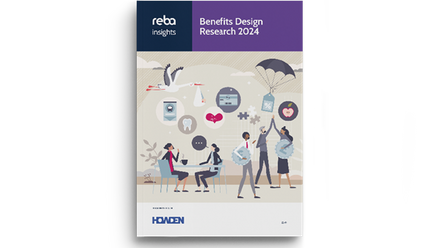Why supporting remote workers in these unprecedented times will benefit companies in the longer term

Keeping employees engaged and on board during this period will depend on HR teams remaining agile and making the most of the tools at their disposal. Putting processes in place now is time well-spent, as employees may look to work from home more extensively in the future.
Below we outline some key areas for consideration, which will benefit companies now but also in the longer term:
Meeting employees’ expectations of health support
Mercer’s 2020 Global Talent Trends Study shows that 61% of employees trust their employer to look after their health and hold them accountable for making decisions in their interest.
Right now, many people will be looking to their employers for information on what their PMI scheme covers and how they can extend this to support dependants. Employers need to work closely with providers to ensure they have this information to hand and any scheme changes are quickly and clearly communicated back to employees.
In the UK, for example, insurer Vitality has extended its scheme to offer higher hospitalisation premiums for employees who become sick. In the US, meanwhile, the Department of Health and Human Services has declared that it will not impose penalties on providers using certain telehealth technologies that are not HIPAA compliant during COVID-19.
But healthcare extends far beyond PMI. Over the last decade we’ve seen more and more preventative measures introduced into employers’ health and wellbeing schemes. These will play a vital role in supporting employees during this period – but only if they know about them. Employers need to consider how they’re communicating existing benefits to employees, such as the mental health support many already offer through employee assistance programmes.
It’s also important that employers look critically at their healthcare benefits and identify any holes in the support they offer within the current context. With gym memberships frozen and many people concerned about the physical effects of weeks at home, is it time to offer a virtual fitness class? Diversifying benefits in such a way will be beneficial now, but also promotes a more inclusive and overarching wellbeing strategy beyond our current crisis.
Instilling a sense of company culture
According to Mercer, two-thirds of employees globally feel at risk of burnout from a pressure to perform at work in the year ahead, a statistic likely to be exacerbated by social distancing, remote working, closures and quarantines.
Instilling a sense of company culture will be key to keeping employees engaged and morale high during this difficult time. When physical team socials and off-site meetings are no longer an option, employers need to think about how to take some of their ‘softer’ benefits into the virtual realm. It’s great to see a number of teams arranging quizzes or more informal catch-ups, as these help employees feel part of something beyond their own workload.
However, employers also need to consider employees’ individual preferences and pressures. For many, Zoom fatigue is becoming real. HR teams need to be cognisant of this and consider other ways to demonstrate company culture. Working parents in particular may appreciate more flexibility around working hours or the opportunity to buy and sell holiday. Others might be looking for tools to help them manage their mental wellbeing. At Thomsons we have partnered with Unmind to provide employees with clinically backed tools to support in this area.
Again, communications are key in maximising these initiatives. Employers need to use the tools at their disposal to ensure people know about them and that best practice is shared throughout the organisation.
Final thoughts
There’s no doubting that employers across the board are facing challenging times. There is an acute need for workforces to pull together and do everything they can to drive their businesses forward. With employees facing added stresses, it is important that they feel supported by their employers to mitigate uncertainties surrounding their work life and to improve their wellbeing.
This article is provided by Thomsons Online Benefits.






